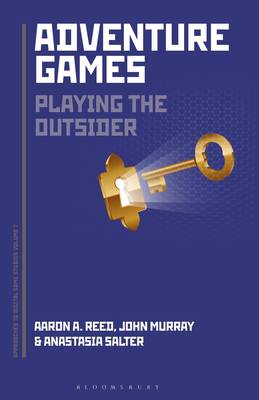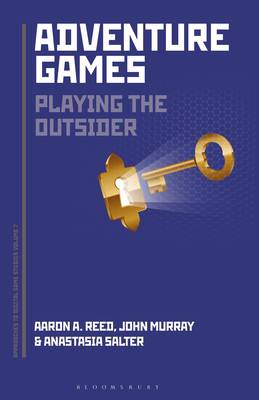
- Afhalen na 1 uur in een winkel met voorraad
- Gratis thuislevering in België vanaf € 30
- Ruim aanbod met 7 miljoen producten
- Afhalen na 1 uur in een winkel met voorraad
- Gratis thuislevering in België vanaf € 30
- Ruim aanbod met 7 miljoen producten
Zoeken
€ 271,45
+ 542 punten
Omschrijving
The genre of adventure games is frequently overlooked. Lacking the constantly-evolving graphics and graphic violence of their counterparts in first-person and third-person shooters or role-playing games, they are often marketed to and beloved by players outside of mainstream game communities. While often forgotten by both the industry and academia, adventure games have had (and continue to have) a surprisingly wide influence on contemporary games, in categories including walking simulators, hidden object games, visual novels, and bestselling titles from companies like Telltale and Campo Santo.
In this examination of heirs to the genre's legacy, the authors examine the genre from multiple perspectives, connecting technical analysis with critical commentary and social context. This will be the first book to consider this important genre from a comprehensive and transdisciplinary perspective. Drawing upon methods from platform studies, software studies, media studies, and literary studies, they reveal the genre's ludic and narrative origins and patterns, where character (and the player's embodiment of a character) is essential to the experience of play and the choices within a game. A deep structural analysis of adventure games also uncovers an unsteady balance between sometimes contradictory elements of story, exploration, and puzzles: with different games and creators employing a multitude of different solutions to resolving this tension.Specificaties
Betrokkenen
- Auteur(s):
- Uitgeverij:
Inhoud
- Aantal bladzijden:
- 240
- Taal:
- Engels
- Reeks:
Eigenschappen
- Productcode (EAN):
- 9781501346545
- Verschijningsdatum:
- 20/02/2020
- Uitvoering:
- Hardcover
- Formaat:
- Genaaid
- Afmetingen:
- 140 mm x 216 mm
- Gewicht:
- 426 g

Alleen bij Standaard Boekhandel
+ 542 punten op je klantenkaart van Standaard Boekhandel
Beoordelingen
We publiceren alleen reviews die voldoen aan de voorwaarden voor reviews. Bekijk onze voorwaarden voor reviews.







